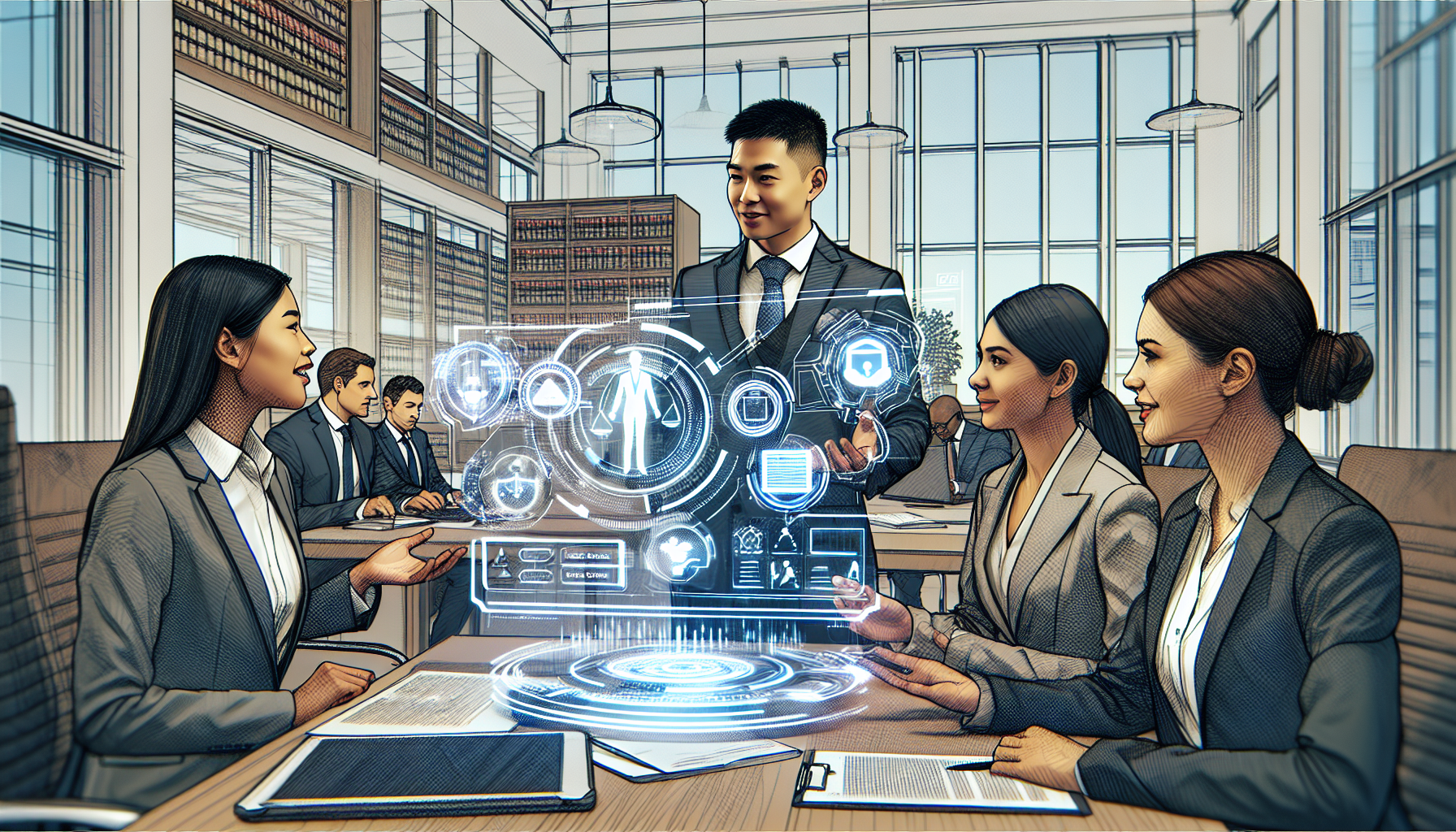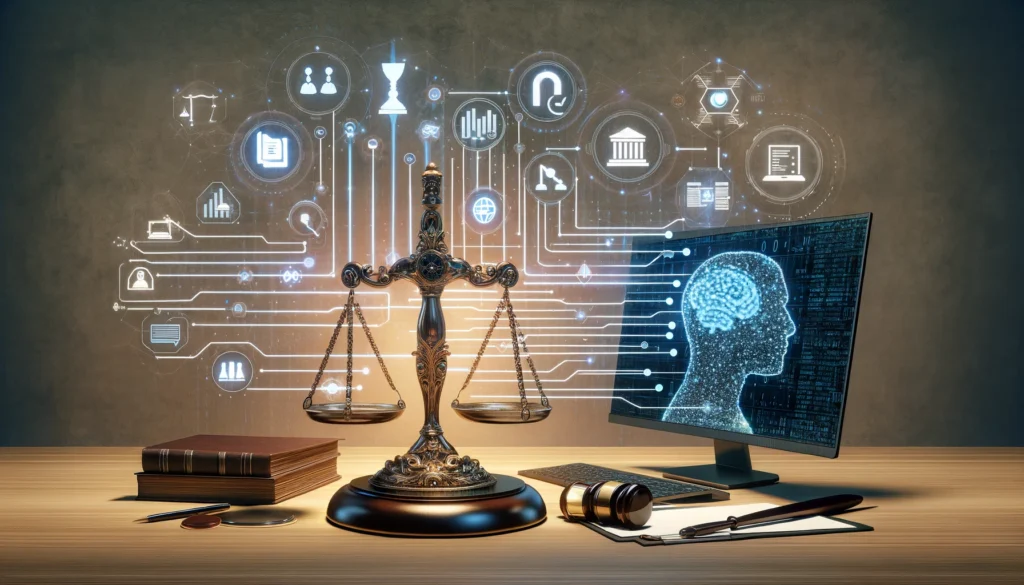
Opening the Dialogue: Understanding Litigation Holds and the Role of AI
In corporate legal management, litigation holds are indispensable for ensuring the preservation of all relevant information when a legal dispute arises. The requirement to issue and manage these holds effectively cannot be overstated, as failure to do so can result in severe sanctions and adverse legal outcomes. This is where Artificial Intelligence (AI), specifically ChatGPT, steps in.
ChatGPT, an advanced language model developed by OpenAI, holds the potential to revolutionize many monotonous yet critical legal processes. From drafting documents to handling communication, ChatGPT offers a robust, efficient, and scalable solution. Deploying AI-driven tools like ChatGPT can transform the traditionally labor-intensive litigation hold process into a streamlined, accurate, and time-efficient operation.
With this backdrop, let’s delve deeper into how we can optimize ChatGPT to enhance the management of corporate litigation holds.
Laying the Groundwork: Setting Up ChatGPT for Optimal Use
To harness the power of ChatGPT for litigation holds, the initial setup and integration into your existing workflow is critical. The process is straightforward yet requires meticulous attention to customization.
- Integration: Begin by integrating ChatGPT with your existing case management and communication systems. This ensures seamless data flow and operational continuity.
- Customization: Tailor the parameters of ChatGPT to suit specific legal tasks. This may involve fine-tuning the model to understand specific legal jargon, recognize the context, and apply appropriate legal standards.
- Prompts and Templates: Develop a set of key prompts and templates for common litigation hold scenarios. These might include initiating a hold, confirming receipt, and follow-up notices. Examples include:
“Prompt: Generate a litigation hold notice for a breach of contract case addressing key preservation requirements.”
“Template: Follow-up notice to ensure compliance with the initial litigation hold directive.”
By setting up these foundational elements appropriately, you lay the groundwork for ChatGPT to operate at its optimal capacity.
Conversation Starters: Crafting Effective Prompts for Litigation Hold Notices
Effective prompts are vital for generating nuanced and comprehensive litigation hold notices that meet legal standards. It’s crucial to ensure that the prompts guide ChatGPT to produce content that is both precise and legally compliant.
- Nuanced Prompts: Your prompts should demand detailed and context-specific responses from ChatGPT. For instance:
“Draft a litigation hold notice for a patent infringement case involving technical documentation and email correspondence over the past two years.” - Ensuring Compliance: Ensure that the generated notices address all necessary legal standards and compliance requirements. This includes specifying the types of data to be preserved, legal citations, and deadlines.
- Effective Examples and Outcomes: Providing quality prompts can yield highly effective outcomes, such as:
“Prompt: Create a hold notice covering employees across multiple departments for a workplace harassment case.”
“Outcome: A detailed notice delineating the departments, types of data to preserve, and legal ramifications of non-compliance.”
Crafting such prompts ensures ChatGPT outputs legally sound and comprehensive hold notices.
Precision Tools: Using AI for Monitoring and Follow-Up Communications
Once litigation hold notices are issued, monitoring compliance and sending follow-up communications are crucial. ChatGPT can significantly streamline these tasks, providing both efficiency and thoroughness.
- Monitoring Compliance: ChatGPT can help track the status of compliance. For example, prompts like:
“Analyze responses to the litigation hold notice and generate a compliance report.”
This ensures that all steps are accounted for and that gaps are identified promptly. - Follow-up Emails and Reminders: Crafting periodic follow-ups is essential. Automated prompts can be set up, such as:
“Generate a reminder email for employees who have yet to confirm receipt of the litigation hold notice.” - Automation with Personal Touch: While automating routine communications, it’s essential to maintain a personal touch. Custom prompts that allow for personalized elements can be used, like:
“Generate a follow-up email to John Doe, addressing his specific queries regarding the hold notice.”
This approach ensures consistent and thorough communication throughout the litigation hold process.
The Efficiency Equation: Streamlining Document Review and Management
ChatGPT can also significantly enhance the process of document review and management, a critical part of litigation holds.
- Efficient Categorization and Review: Utilizing ChatGPT for initial document sorting can save considerable time. Prompts such as:
“Categorize these documents based on their relevance to the litigation hold.” - Identifying Pertinent Information: The AI can be directed to identify key pieces of information crucial to the case. For instance:
“Highlight emails that reference the contractual dispute in question.” - Reducing Human Error: By leveraging AI, you can minimize the risk of human error in document management. ChatGPT’s consistent performance ensures greater accuracy during categorization and review.
These techniques collectively augment the efficiency and reliability of document management in litigation holds.
Creative Solutions: Addressing Challenges with Advanced AI Techniques
Despite the advantages, challenges in managing litigation holds can arise. However, advanced AI techniques offer creative solutions.
- Overcoming Common Hurdles: Handling large datasets and diverse document types can be managed better through AI. For example:
“Prompt: Analyze a dataset of financial records and emails for relevance to the litigation hold.” - Handling Exceptional Cases: For complex queries or atypical cases, ChatGPT can be trained with advanced prompts.
“Identify documents related specifically to the CEO’s involvement in the alleged fraudulent activity.” - Continuous Improvement: Constantly refining prompts based on outcomes ensures the tool’s efficacy remains high. Gather insights from each interaction to tweak and enhance ChatGPT’s performance.
Using these techniques, ChatGPT can manage even the most challenging aspects of litigation holds efficiently.
Ethical Considerations: Navigating AI Use in Sensitive Legal Contexts
While leveraging AI in legal contexts promises efficiency, it is crucial to navigate ethical considerations meticulously.
- Confidentiality and Compliance: Ensure that ChatGPT is used in a manner that upholds client confidentiality and complies with legal standards.
- Handling Sensitive Data: Implement robust security measures to safeguard sensitive data processed by AI. This includes encryption and access control.
- Balancing Efficiency with Ethics: Always weigh the benefits of efficiency against ethical responsibilities. Regular audits and compliance checks can ensure this balance.
Maintaining high standards of ethics ensures that AI tools like ChatGPT are used responsibly and effectively in legal practice.
Transformative Insights: The Future of Legal Work with AI Assistance
The legal landscape is continuously evolving, and AI is set to play a transformative role in this change.
- Evolution of AI in Legal Practice: AI is becoming integral to various legal tasks, bringing unprecedented efficiency and accuracy.
- Future Developments: Anticipate advancements like real-time legal research, predictive analytics, and more sophisticated document generation.
- Encouraging Innovation: Legal professionals should foster a forward-thinking mindset, embracing AI tools to enhance their practice and deliver superior client service.
There’s immense potential for growth, making it an exciting time for lawyers and paralegals to innovate with AI technology.
Wrap-Up: Your Path to Enhanced Efficiency and Effectiveness
In summary, ChatGPT offers a remarkable opportunity to streamline the management of corporate litigation holds. From setup and prompt crafting to monitoring compliance and ethical considerations, each step builds towards enhanced operational efficiency and effectiveness. By leveraging AI, legal professionals can not only manage workloads more effectively but also deliver superior legal service.
As you integrate ChatGPT into your litigation hold processes, don’t hesitate to experiment and refine your approach. Embrace the potential of AI to revolutionize your legal practice.


